Looking to be a more earth-friendly new parent?
Here are a few suggestions to get you started.
Having a baby is a beautiful thing, and most of us run to get all the pretty things: for clothes, for toys, for the nursery, for mealtime, for outer gear, etc. As “sparking joy” and simplifying our homes and spaces is becoming more attractive, not only as a way to save money but also help the earth, here are some creative ways you can indulge in all of your nesting fantasies, give your baby the best, but also reduce waste and be both easy on the environment and your wallet.
Buy Second Hand & Local - Probably the number one thing you can do to help reduce waste and ease your impact on the environment with a new baby is to buy used as much as possible. Check your local resources first. Try: FB marketplace, OfferUp, Craigslist, NextDoor, Just Between Friends events, and all of your local thrift and consignment stores. Items that are easily sourced second hand are clothes, carriers, strollers, toys, books, nursery furniture, high chairs.
Rent / Share / Borrow - If you are only going to be using a piece of baby gear for a short time, either for travel, or to test out, consider renting it. Check out Baby Quip to rent everything from car seats to cribs to monitors delivered straight to your door.
Tap into your own social circle. The likelihood is you know other expecting or new moms that have the same values and would be excited to share or borrow baby items. My friends and I had a rotating toy library. Since babies like novelty-and so do moms- simply swapping out toys with friends instead of buying them new just to be donated in a few weeks is a huge lifesaver-- and earth-saver. Check your local library for a toy or puzzle-borrowing library. If they don’t have one, suggest they start one.
And speaking of libraries, borrow ALL of the baby books. It’s hard to predict which books your baby will end up loving. A library is a perfect place to test out dozens of books, and when you have a few winners that will get a lot of love and use, you could add them to your permanent collection at home. Find an impressive array of gently used baby and children’s books at Thrift Books.
Buy Fewer, High Quality Items - When buying new (or used) try and avoid plastic and synthetic materials as much as possible. Stick to the basics and buy better quality. When shopping for toys, think of open-ended toys that can grow as baby develops. Choose organic, natural materials, such as a set of wooden blocks or an organic cotton baby doll. Bamboo is another earth-friendly material used to make everything from plates and tableware to towels and diapers. Check resources such as Green Child Magazine for specific recommendations. Also look for companies putting out products made from 10% recycled materials such as these adorable trucks from Green Toys.

Use Cloth - There is a lot of mess when it comes to babies, and that can mean a lot of paper and plastic waste. Whenever possible, substitute one-use products for cloth or washable products. By now, you’ve probably heard of cloth diapers, but there are also cloth wipes, washable diaper pail liners, bamboo nursing pads, washable changing pads and so much more. One of my personal faves for all items baby mama zero-waste is Marley’s Monsters. Almost anything that is single-use can now be found in a sustainable or zero-waste version.
Minimize Food Packaging - There are lots of ways to come at this. One decision is to make your own baby food from scratch or practice baby-led weaning. Of course this isn’t always possible, especially when traveling or on-the-go. In those cases, seek out companies that minimize plastic packaging. Amara organic baby food, for example, uses 12 times less plastic than leading brands of baby food pouches. Also when snacking, try and avoid single snack packaging which produces a ton of waste. Instead, buy your snacks in bulk and then put them in reusable snack pouches or glass tupperware. You can even make your own baby food puree, and put it in a reusable pouches, like these. Most grocery chains also offer these reusable options in the aisle next to the plastic baggies.

Breastfeed when Possible - This is a very personal decision and not possible for every mom, but if you can and are on the fence about it, know that breastfeeding is a boon to the environment. It does not create pollution or waste and is naturally-renewable, sustainable and doesn’t need any packaging or even shipping. It is the original “eat local” movement.
Wait and See - While as new parents, we are beyond excited and anxious, the truth is most baby items can wait. Aside from diapers, there is hardly ever a baby gear “emergency” that can’t be quickly fixed. There is however, a major pull to buy a ton of stuff in preparation for baby that you won’t ever need or use. In fact marketers definitely prey on this anxiety to get you to feel like you need a bunch of stuff that you don’t. Of course, nobody knows but you what those items will be, but that is something that is best learned once baby comes. For example, many moms find they never even use a crib because they prefer co-sleeping. Other moms find they never use a stroller because they absolutely love their carrier. And other moms discover they can’t live without a noise machine. These are often things we figure out as we go. And once you get started, you may find you “need” way less than you thought you would, saving tons of money and waste in the process. To see an example of a minimalist baby essentials list, we like this one from The Art of Simple.
Of course there are way more actions you can take, big and small, to be a little kinder on the earth as a new parent. We’d love to hear from you! Let us know what you do that has worked for you in the comments.
Looking for a more environmentally-friendly baby food option? With 12 times less plastic than the competition and 100% organic, Non-Gmo baby food blends, shop Amara here. Love the Earth and your Baby with Amara.
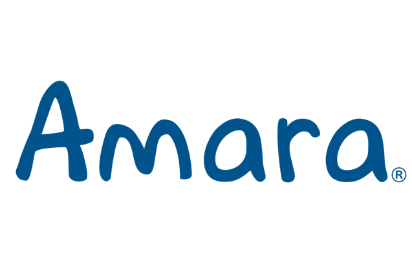
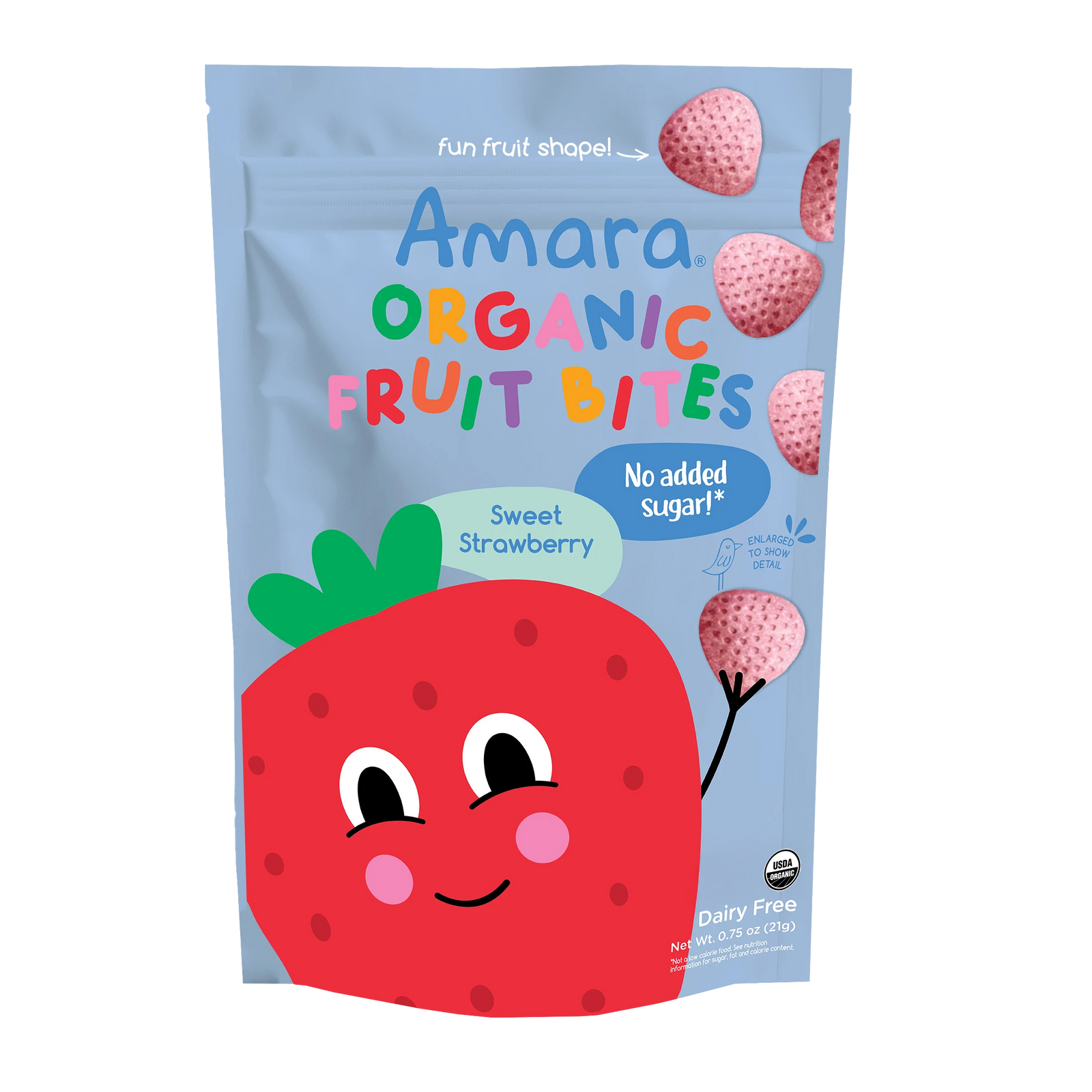





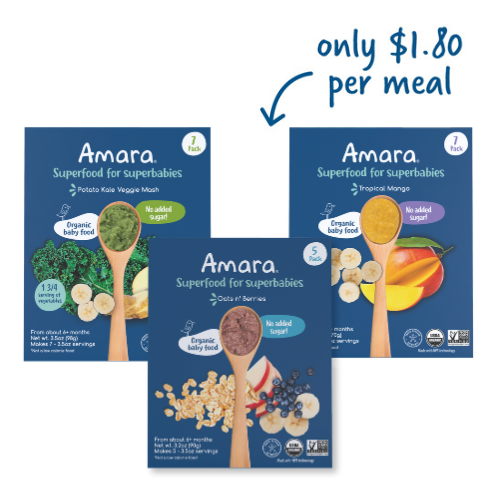
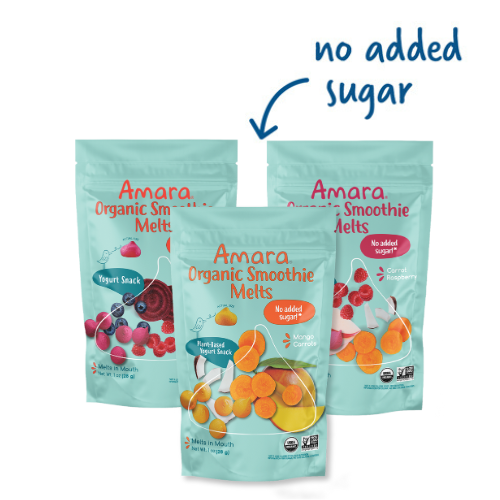
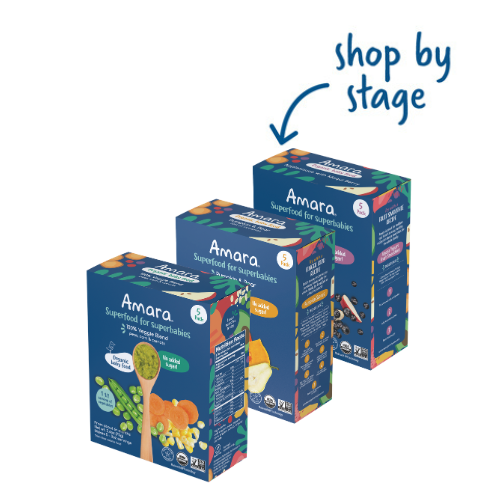
Leave A Comment